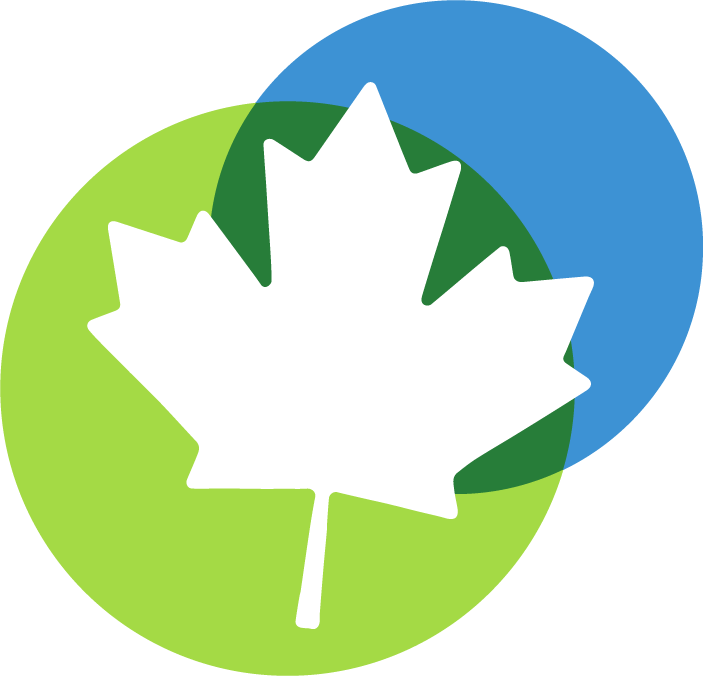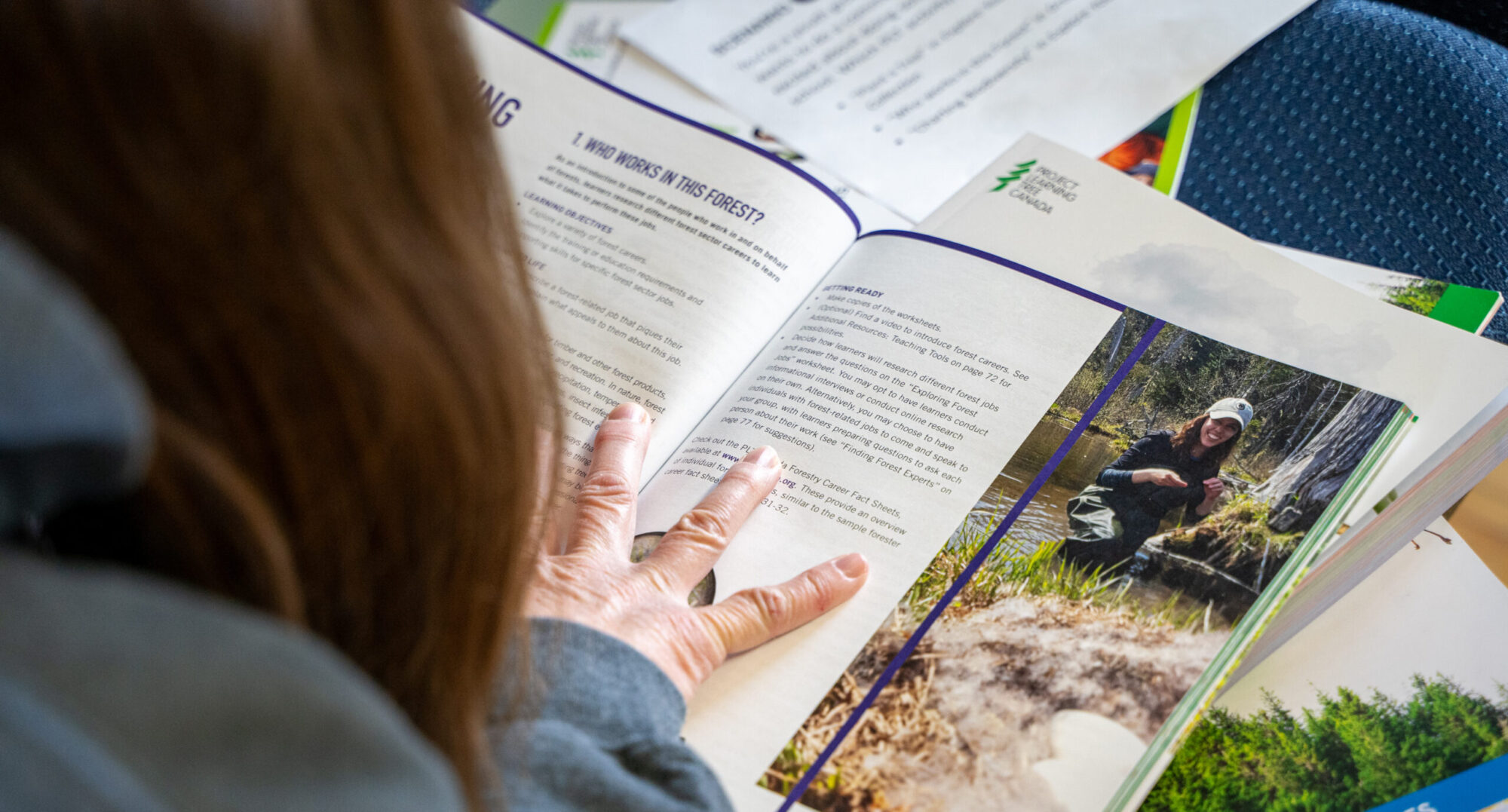Engage kids with nature-based learning
Explore some great environmental resources from our partners to connect young learners to nature! Nature education plays an important role in fostering an understanding and appreciation for the natural world. In a world increasingly disconnected from nature, supporting nature education is essential for cultivating environmental awareness and stewardship.
PROJECT LEARNING TREE CANADA RESOURCES
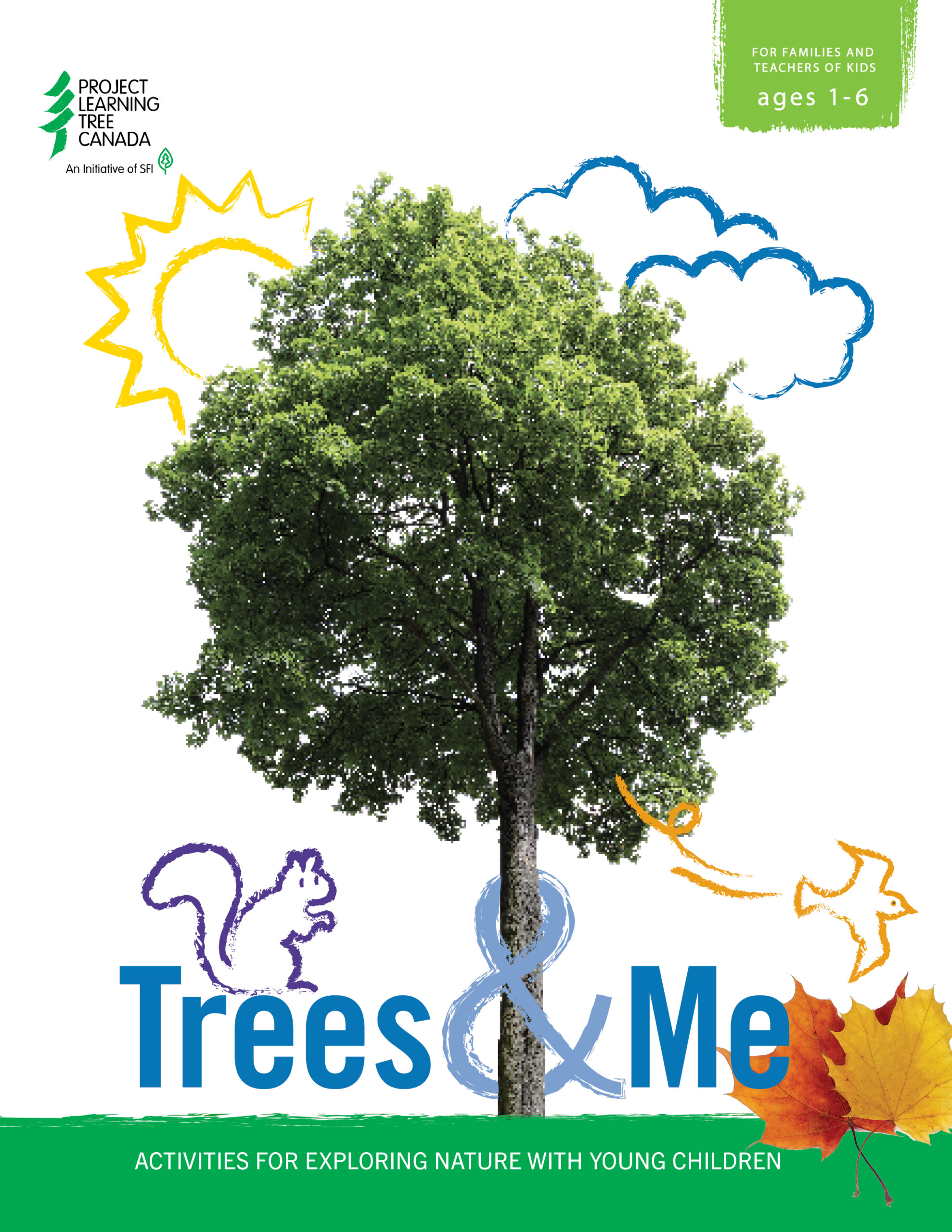
Trees & Me
Trees & Me contains hundreds of ideas for fun, easy-to-do, hands-on experiences to connect young children to nature, with a focus on trees and forests. Through indoor and outdoor activities, children explore nature through their five senses, experience trees throughout the seasons, and connect with their community.
WHAT: Curriculum Resource
WHO: For ages 1-6
INCLUDES: 12 hands-on activities, suggested readings, fun songs, snacks and art
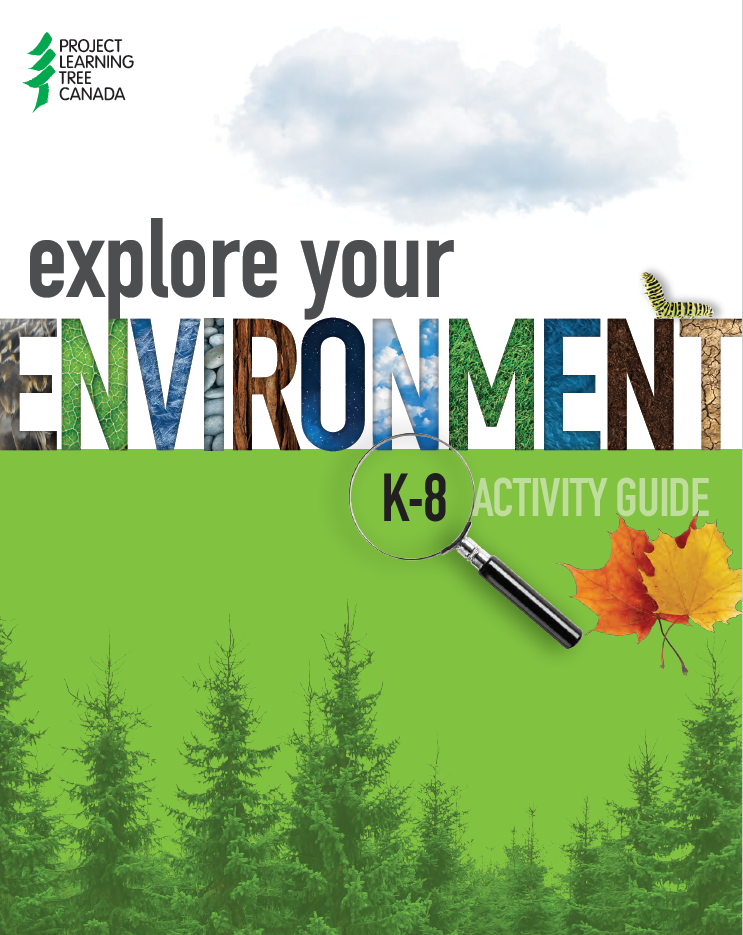
Explore Your Environment: K-8 Activity Guide
Explore Your Environment: K-8 Activity Guide includes 50 hands-on, multidisciplinary activities to connect children to nature and increase young people’s awareness and knowledge about their environment. Activities include detailed step-by-step instructions, academic correlations, time and material requirements, and corresponding student worksheets with green career connections.
WHAT: Curriculum Resource
WHO: Grades K-8
INCLUDES: 50 hands-on activities, students pages, appendices, topic index
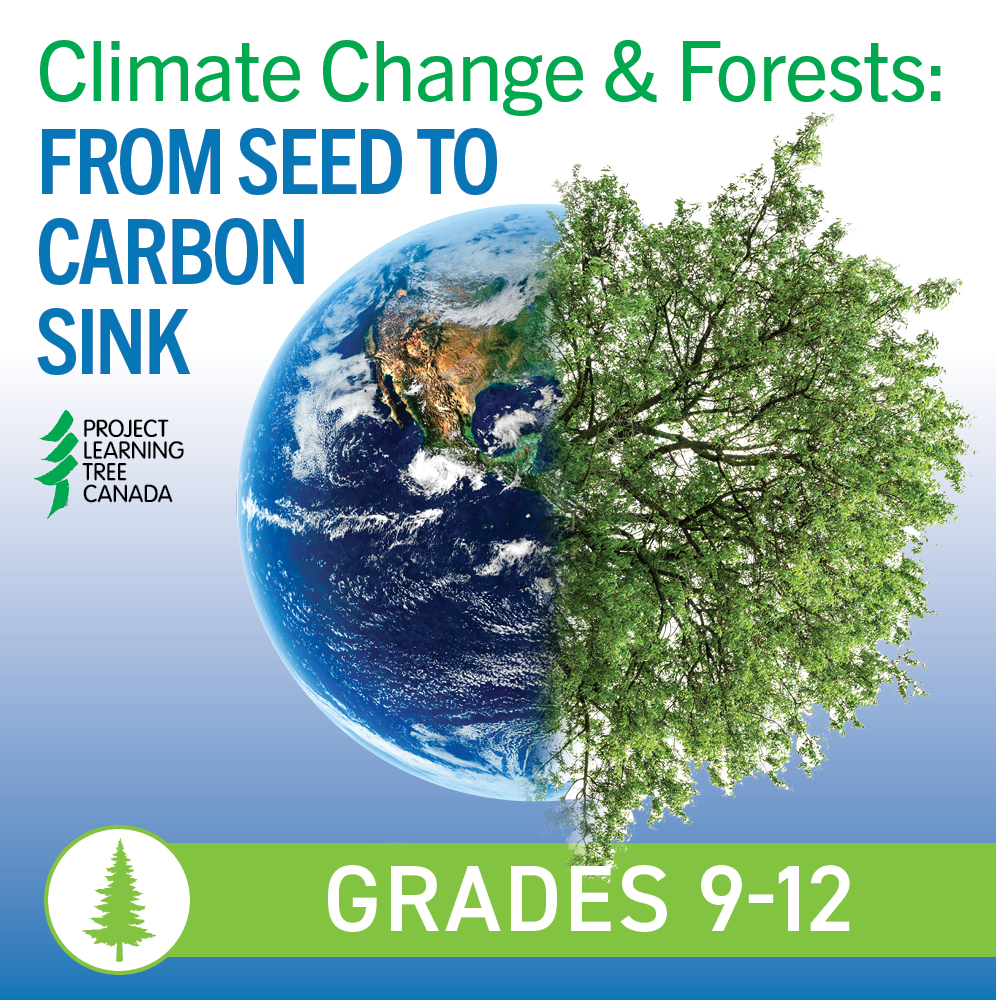
Climate Change & Forests: From Seed to Carbon Sink E-Unit
Climate Change and Forests: From Seed to Carbon Sink includes eight activities for educators working with students in grades 9-12. The activities engage learners in inquiry and place-based learning to help them discover how forests contribute to climate change mitigation and adaptation.
WHAT: Online Activity Guide
WHO: Grades 9-12
INCLUDES: Student pages and printables for educators
OUTWARD BOUND CANADA RESOURCES
Earth Rangers Resources

Earth Rangers Homeroom
This suite of engaging activities makes connections to the environment and wildlife through interactive learning. Available in English and French, and complete with accessible resources, these classroom activities are a great starting point for age-appropriate environmental learning and to get children excited about taking part in eco-action.
WHAT: Free online environmental education resources
WHO: For Grades K-6
INCLUDES: Classroom activities, podcast listen and learns, and overviews of environmental concepts for educators
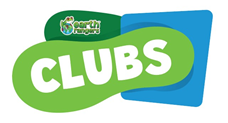
Earth Rangers Clubs
Designed with kids aged 6-12 in mind, Earth Rangers Clubs is an easy-to-use platform to support eco-club leaders in English and French. For educators looking to start an eco-club or who already have one and are looking for their next project, there is something for everyone. The Earth Rangers Clubs community of eco-clubs makes a difference through engaging environmental quests and missions, all while earning fun rewards.
WHAT: Free online platform
WHO: For eco-club leaders
INCLUDES: Easy-to-follow Club Quests, Club Missions, and support material for club leaders
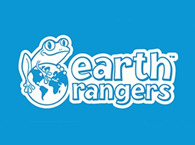
Eco-Anxiety to Eco-Action Micro-Credential
Based on a considerable body of research, this micro-credential lays out the basics of eco-anxiety and offers practical strategies and tools to address it with children. Through research, readings, reflections, videos and case studies, participants are introduced to theory and practice. Practical examples and planning frameworks provide busy educators with tools to implement Eco-Action projects with students.
WHAT: Professional Development
WHO: Educators
INCLUDES: Five online self-paced modules, three zoom sessions with educators across North America, and a course guidebook
Ducks Unlimited Canada Resources
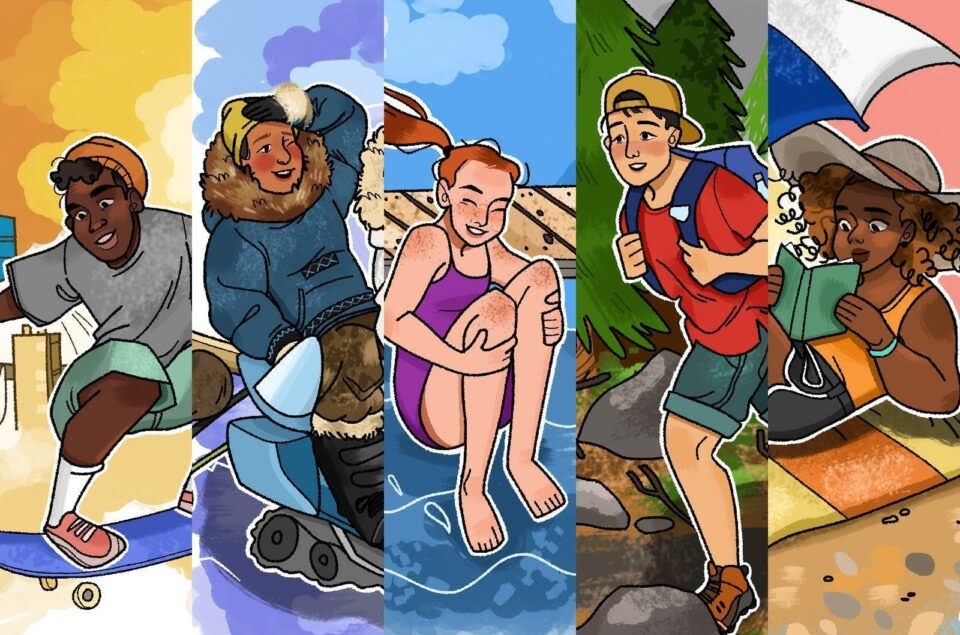
My Hobby, Our Climate
My Hobby, Our Climate is designed to help students make the connection between climate change and their personal lives.
In this activity, students will meet five Canadian teenagers with hobbies that are being affected by climate change. After hearing the teenagers’ concerns, students will discuss the various consequences of climate change and offer some solutions. They will then take time to reflect on what they personally enjoy doing and what they can do for their future.
WHAT: Activity
WHO: Grades 9 and up
INCLUDES: Student worksheet and teaching guide

The Climate Change Conundrum
The Climate Change Conundrum is meant to help students identify their emotions surrounding climate change and provide coping strategies. After reading through the cartoon, students will be asked to identify what characters are feeling and why they might be feeling this way. Students will be encouraged to share their own emotions related to climate change and address their coping strategies. They will then discuss the Coping Strategies Model, co-created with Inês Lopes, PhD, psychologist and education consultant.
WHAT: Activity
WHO: Grades 9 and up
INCLUDES: Cartoon and teaching guide

Wetlands to the rescue!
Wetlands to the Rescue! combines extensive research on how wetlands play a role in mitigating climate change, while also making sure young people are taught climate change in a responsible way that will make them feel empowered.
In this PowerPoint, students will learn the causes and consequences of climate change in Canada, examples of behaviour-based and nature-based solutions, how wetlands are helping us in the fight against climate change, and how young climate activists are changing the world.
WHAT: Lesson and optional activities
WHO: Grades 9 and up
INCLUDES: PowerPoint and Summary Sheet
Canadian Wildlife Federation Resources
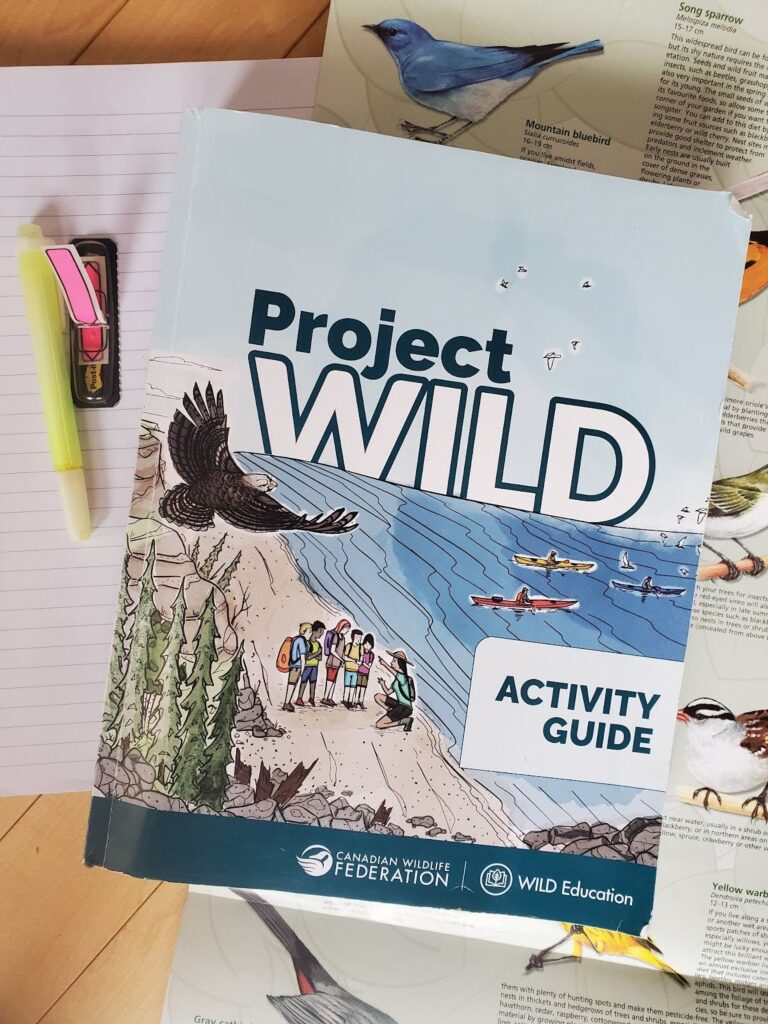
Project WILD
Project WILD is one of the most widely used conservation and environmental education programs among formal and non-formal educators of K-12-aged children around the world. The program helps learners develop the awareness, knowledge, skills and commitment needed to make informed decisions and to take constructive action for wildlife, habitat and the environment.
WHAT: Curriculum Resource
WHO: Grades K-12
INCLUDES: 146 hands-on lesson plans and activities, including student pages, and additional teaching resources
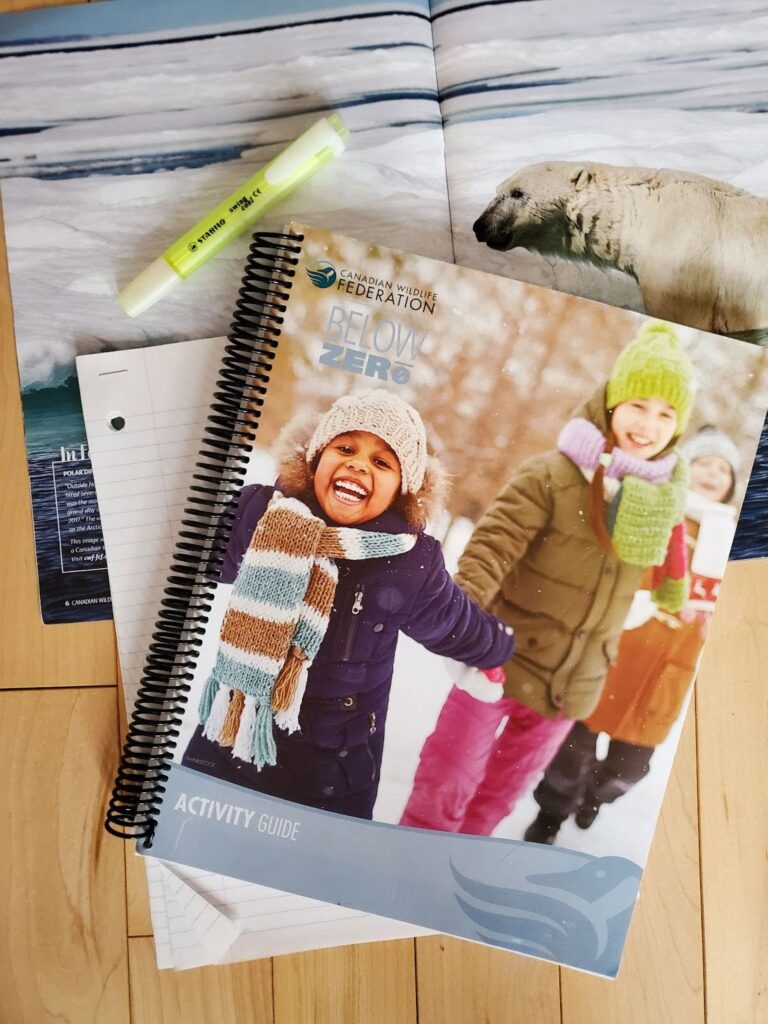
Below Zero
Where do dragonflies go when the snow flies? What keeps wood frogs from croaking in the winter? Most Canadians live with snow and ice for at least five months of the year yet know surprisingly little about life in frozen environments. Below Zero is a K-12 educational program designed to promote understanding of wildlife under winter conditions.
WHAT: Curriculum Resource
WHO: Grades K-12
INCLUDES: 46 hands-on lesson plans and activities, including student pages, and additional teaching resources
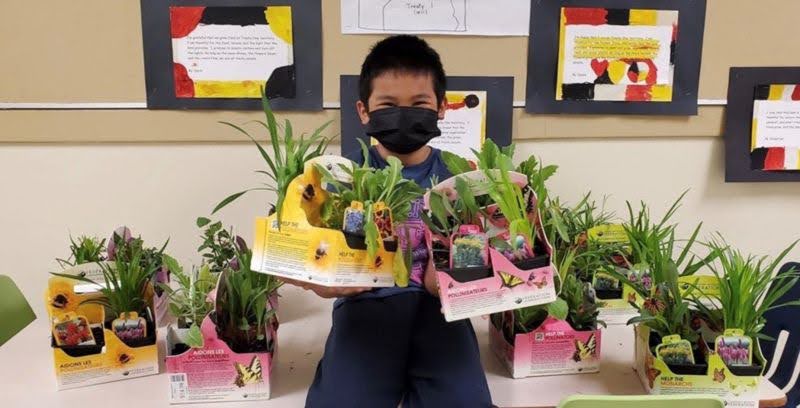
WILD Spaces
The WILD Spaces program connects educators and children to nature and helps protect pollinators through hands-on learning experiences. The program guides teachers in empowering elementary students to learn about pollinators, adapt school or community gardens to create pollinator habitat, observe, and document pollinators in the garden and share their experiences with others in the program across Canada.
WHAT: Online Classroom
WHO: Grades K-6
INCLUDES: Lesson plans, student sheets, projects and school gardening resources
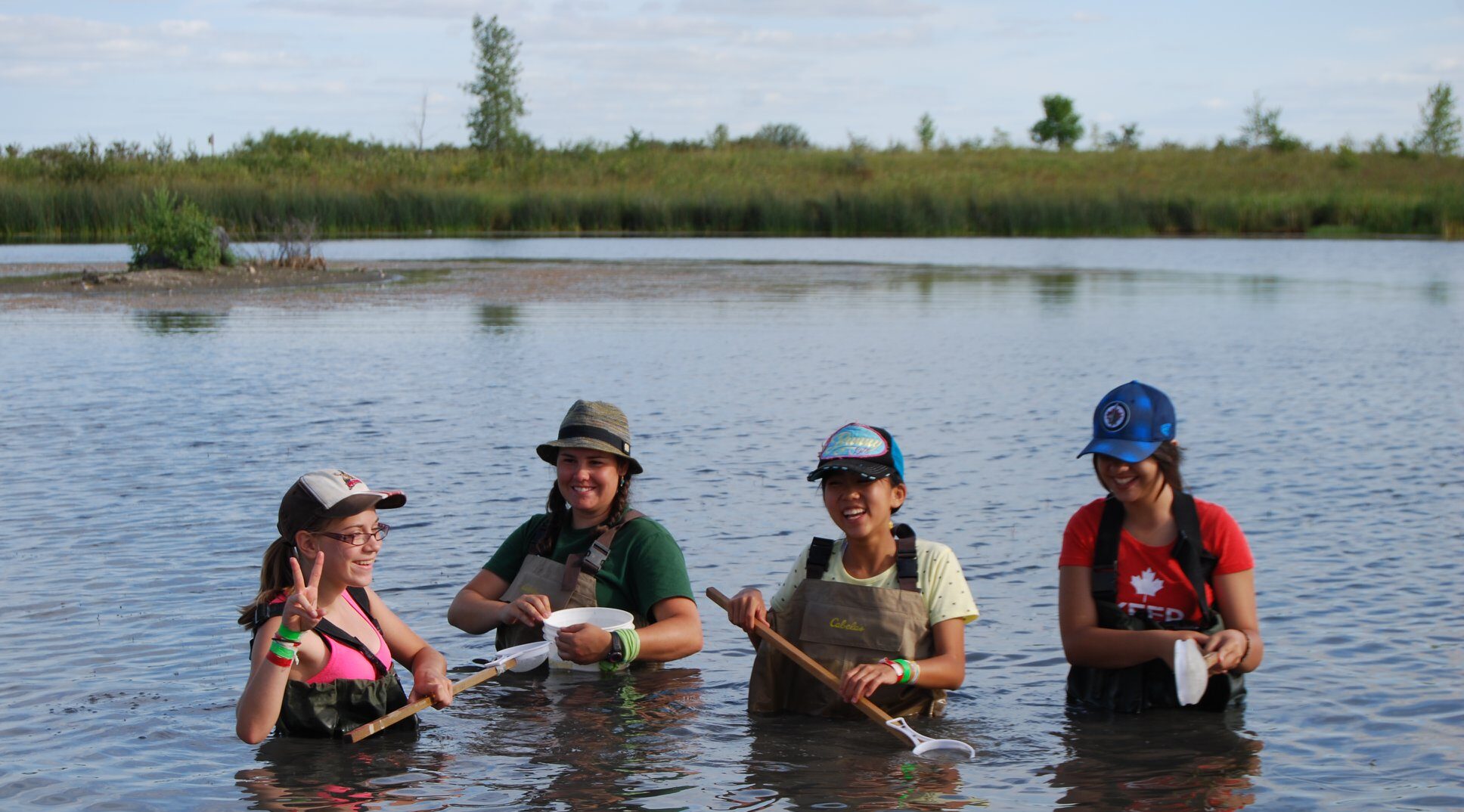
GET INVOLVED
The NEC is looking for school board partners in Winnipeg, Ontario, and New Brunswick who would like support implementing more nature-based education in their schools. Interested in receiving free school programs, field trips, teacher training, and a regional event? Contact Jessy at j_stjean@ducks.ca.
